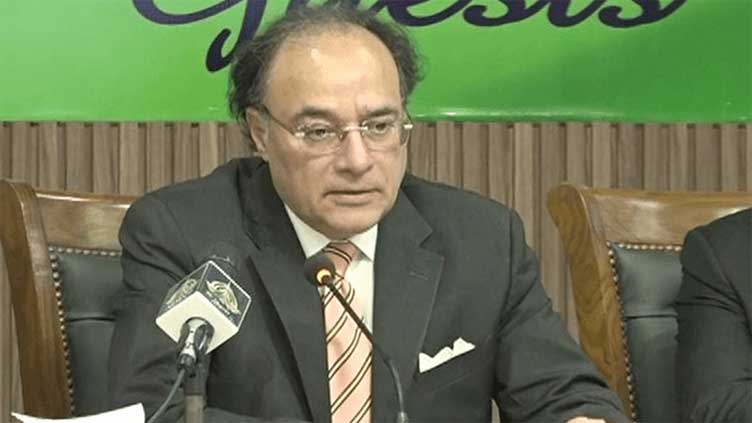Pre-budget seminar: Aurangzeb stresses on structural reforms in taxation system

Business
He said that the government has been trying to minimize human involvement in tax collection system
KARACHI (Dunya News) – Finance Minister Muhammad Aurangzeb has expressed the optimism that this will be the last IMF (International Monetary Fund) programme, but warned that it will be possible if structural reforms are implemented.
Speaking at a pre-budget seminar here on Wednesday, the minister said that it was being attempted to keep the government away from running businesses. “The country now needs to be run by the private sector," he added.
Aurangzeb said the government required tax revenue to run the country. “We are trying to reform the tax authority. The business community is willing to pay more taxes, but they do not want to deal with the tax authority. However, this is not feasible because we are not a country of just 3 to 4 million people."
He said that the government has been trying to minimize human involvement in the tax collection system by using modern technology. It would eliminate the element of harassment by the officials who use negative tactics to mint money for themselves, the minister continued.
He warned against tax exemptions. “Every income-generating and exporting sector, including the manufacturing sector, must come into the tax net. Efforts are being made to ease the salaried class, as they are already taxed automatically when salaries are deposited in their accounts.”
Aurangzeb said that the tax return form was being simplified to eliminate the need for tax advisors. It (the form) would contain around 10 fields, including autofill options.
The business community was invited to submit tax-related recommendations as early as January, so they could be incorporated into the upcoming budget. Many business associations have already submitted proposals. Independent analysts have also been involved to help provide objective advice, as is done in other countries, the finance minister stated.
He acknowledged that Pakistan was currently in an IMF programme. “So there are limitations on what can and cannot be done in this budget.”
But, he said, the government was reaching out to all stakeholders for their input and suggestions, and reassured them that their suggestions would not be discarded.
He announced that the cabinet has approved a decision to separate the Tax Policy Office from the Federal Board of Revenue (FBR); it will now report directly to the Finance Division.
The finance minister noted that while private businesses plan for five to 15 years ahead, the government currently makes budgets on a year-by-year basis, which is a shortcoming.
He said that the Tax Policy Office will deal with tax-related matters for the business community, while the FBR will focus solely on tax collection. This will be the last year the FBR has a role in tax policy Finance Minister Aurangzeb concluded.


